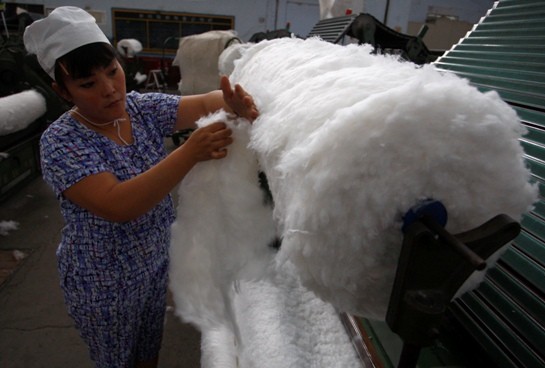China's major cotton producer in Xinjiang continues to oppose a government policy which seeks an end to the stockpiling of cotton that resulted in the artificial increase in prices.
Reuters reported that the Xinjiang cotton producers were wary that the policy could force them to reduce their output and affect the employment of thousands in the region.
China's National Development and Reform Commission (NDRC), the proponent of the reform, has announced in January that it plans to end stockpiling and allow the market to dictate demand.
The new policy has caused the price of cotton to drop and industry experts say the subsidy did not encourage the farmers to continue to cultivate their crops.
The Xinjiang Production and Construction Corps (XPCC), also known as "bingtuan" or army corps has a dominant role in the area's cotton industry and employs more than 200,000 Han Chinese in Xinjiang.
Driven by low market prices, XPCC wants the government to buy some of its products and place it in state reserves.
Beijing, however, pledged to assist the cotton producers by providing subsidies to absorb the impact of ending the stockpiling.
Aside from this, the region is also beset by employment problems such as lack of jobs and discrimination and underdevelopment.
Uyghurs, who are mostly from Xinjiang, have complained of unfair discrimination and being overlooked in jobs that were sometimes given to Han Chinese.
The government said it is addressing the issue of underdevelopment in the region and denied that the Uyghurs were marginalized.
To resolve the problems, the government promised to invest billions of dollars to set up textile factories in the hope of creating one million jobs in Xinjiang by 2023.























